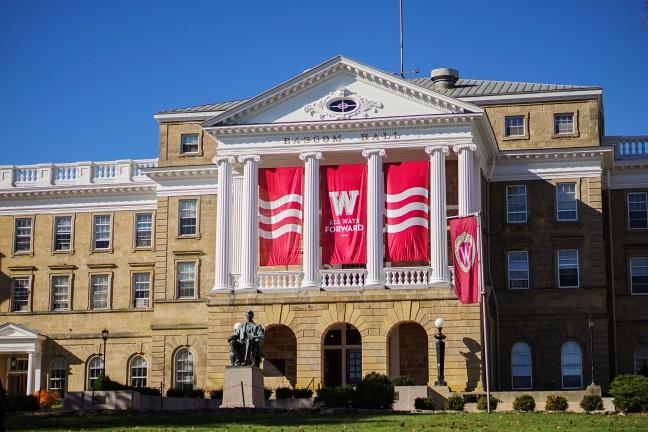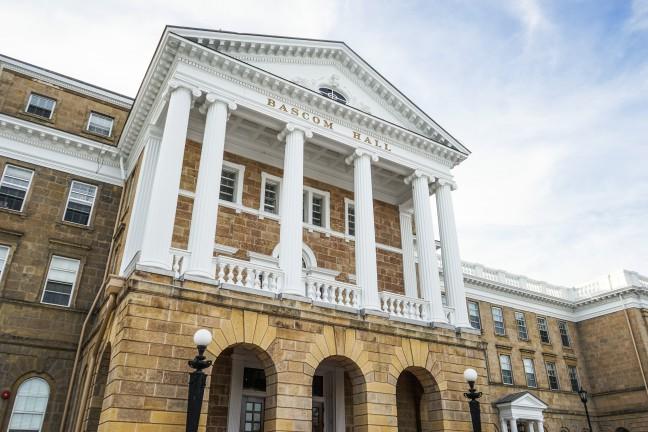In this election cycle, most attention on the city level has either been focused on the battle between Bridget Maniaci and Brenda Konkel for District 2 and, on a student level, the race between Bryon Eagon and Mark Woulf for District 8. And it’s understandable — these contentious races have massive implications for the respective districts and city as a whole. Konkel has often acted as a distracting detour on the road to compromise at City Council, and the effectiveness of a student alder has a huge impact on tenant rights and safety concerns in the downtown area.
But the student population isn’t just a District 2 and 8 concern. District 5 Ald. Robbie Webber decided to bow out, opening her seat to two newcomers — UW Health Director of Community Partnerships and Interpreter Services Shiva Bidar-Sielaff and local lawyer Hamilton Arendsen.
Let us make it clear from the start: Both candidates are entirely capable to represent the 5th district of
However, while both would be competent public servants, we believe our line of questioning reveals a split in philosophy between the two.
Bidar-Sielaff is a far more reserved, yet grassroots candidate. Her previous credentials include sitting on the city’s Police and Fire Commission that recommended the appointment of Noble Wray as the Madison Police Department’s top cop. She openly admitted her involvement was not the result of an expertise on the subject of local law enforcement but rather a curiosity and desire to learn more about this subject through direct involvement. Her attempt to run as alder is based on a similar desire — she admits she does not have intimate involvement and expertise in every area of city government but cites her candidacy as a desire to learn and listen to the myriad viewpoints on city issues and make some of the tough decisions her district and city require.
This of course presents somewhat of a problem in judging her efficacy on certain issues. As she is not a downtown alder, her thoughts on the “culture of alcohol” often vacillated from protective to more cautious in limiting drinking opportunities in
But her views on city budget and transportation were similarly uncertain. She acknowledged a best-case scenario would be to “maintain” services from the most recent budget without cuts but said little about how to do this. Her views on a Regional Transit Authority include light rail, but when it comes to Madison Metro, she had no definitive viewpoint on the future of Metro, its expansion or fare increases.
She had a wealth of knowledge, including that regarding traffic concerns, but she had no real answers to most of the problems she brought up.
Arendsen, on the other hand, came prepared with a definitive idea of what he wanted to tackle in the city, with luring businesses and increasing tax revenue at the core of his platform. His transportation policy was nuanced in its acknowledgement of barriers to feasibility and centered on what makes the city more attractive for employment and businesses. His alcohol approach showed he understood a fair amount of tax revenue comes from bars that actually do thrive in the downtown area and that outright limiting them isn’t the smartest move.
Furthermore, while Bidar-Sielaff mentioned talking to a wide base of constituents in the district, only Arendsen mentioned specifically talking to students around
The fact of the matter is we could easily work with and accept both candidates in this District 5 seat. But Arendsen took the biggest problem in Madison — an impending budget crisis that could effect every social service — and provided at least a framework for bridging this fiscal gap. Bidar-Sielaff wants to keep all these social services (including addressing the homelessness issue, something Arendsen failed to mention) but had an approach more akin to plugging numerous holes in the budgetary boat, rather than building a reinforced hull.
It is for this more city-centric, proactive approach that we endorse Hamilton Arendsen for District 5 alder.
Eric Schmidt dissented from this opinion, voting instead to endorse Shiva Bidar-Sielaff.

















